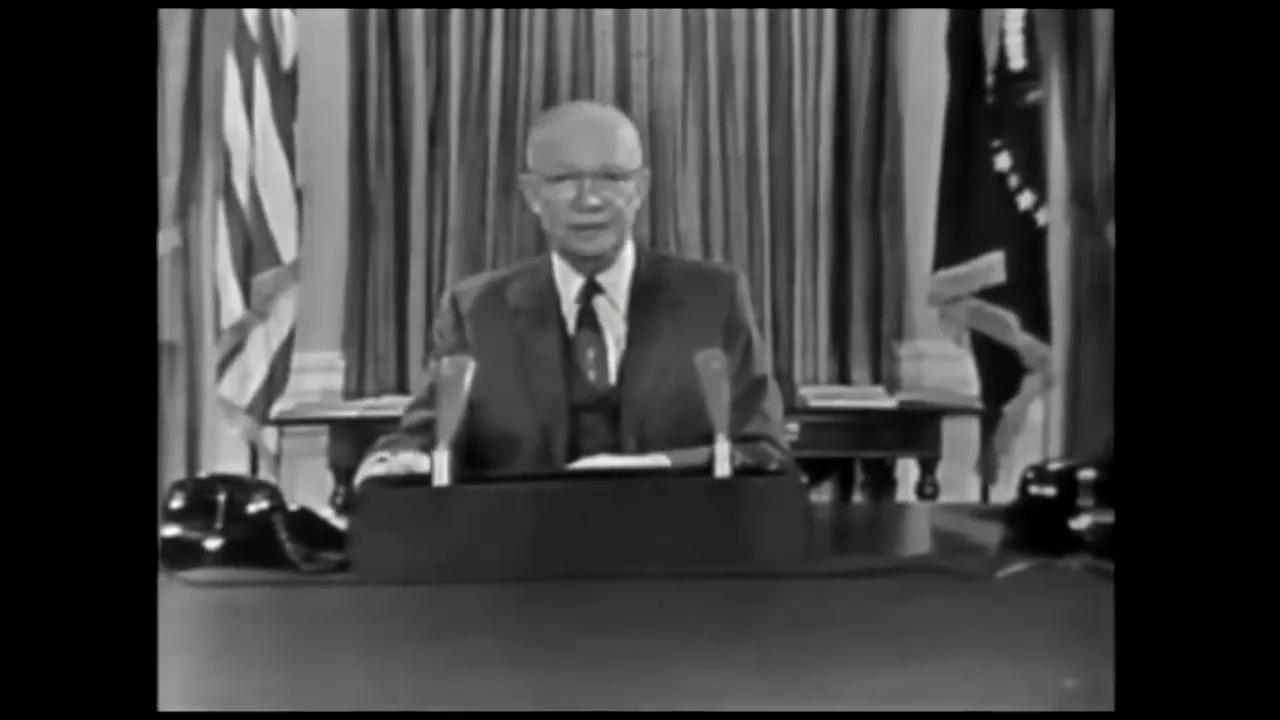
In the annals of American political rhetoric, few speeches have reverberated with as much resonance as President Dwight D. Eisenhower’s Farewell Address delivered on January 17, 1961. At the twilight of his presidency, Eisenhower astutely articulates concerns that transcended his administration and foreshadowed complex dilemmas that the United States would grapple with in the subsequent decades. Among the myriad issues he addressed, his admonition regarding the burgeoning influence of the military-industrial complex stands out, foreshadowing challenges that continue to echo in contemporary governance and foreign policy.
The crux of Eisenhower’s warning lies in the intricate relationship between a militarized economy and the interests of powerful defense contractors. He fervently cautioned against the potential perils of an alliance formed between the military establishment and the arms industry. This partnership, he argued, could engender a deleterious effect on American democratic principles and societal values, as the prioritization of military expenditure might eclipse critical domestic agendas.
To comprehend the gravity of Eisenhower’s concerns, it is essential to contextualize the historical milieu of his presidency. The aftermath of World War II had engendered a period marked by military expansion, technological advancement, and burgeoning defense budgets. Eisenhower, a former five-star general, was acutely aware of the capabilities and costs associated with military preparedness. Drawing from his experiences, he cautioned that an excessive emphasis on military might could result in a peculiar form of governance—a state where military needs dictate the trajectory of national priorities.
One of the most poignant elements of Eisenhower’s address is his acknowledgment of how the military-industrial complex could pervade the very fabric of American democracy. He articulated a vision in which the government could become subservient to the interests of this complex, thereby undermining civic engagement and eroding the principles upon which the nation was founded. The notion that defense contractors might wield disproportionate influence over foreign policy decisions raises profound ethical questions about accountability and the extent to which private interests can commandeer the public sphere.
Moreover, Eisenhower’s cautionary tale extends beyond the military sphere. He urged citizens to remain vigilant against the risks of combinatorial politics, where the intertwining of interests might lead to a form of governance that prioritizes economic gain over the welfare of the citizenry. The implications of his warning resonate starkly in today’s political discourse, where lobbying by defense contractors and the expansive military budget often eclipse other pressing social needs, such as healthcare, education, and infrastructure.
Eisenhower’s narrative is not solely a critique but also a call to action. He implored American citizens to engage in the democratic process, to remain educated about the machinations of government, and to hold their leaders accountable. His address becomes a potent reminder that the vitality of democracy is rooted not only in electoral participation but also in the active stewardship of public affairs by an informed and engaged citizenry. The potential dangers of complacency, according to Eisenhower, are profound; neglecting to scrutinize the interplay between military imperatives and democratic values risked the erosion of civil liberties and public trust.
Furthermore, Eisenhower’s foresight regarding the risks posed by the military-industrial complex invites deeper contemplation about the long-term ramifications of militarization in a modern context. Rapid advancements in technology and warfare have diabolically reshaped global dynamics, rendering the military-industrial complex increasingly prevalent in contemporary geopolitics. The implications are multifaceted; not only does this influence defense budgets and foreign policy, but it also perpetuates a narrative that prioritizes militaristic solutions over diplomatic avenues in international relations.
It is pertinent to reflect on how Eisenhower’s warning has manifested in subsequent administrations. The Vietnam War, the Iraq War, and ongoing military engagements underscore a recurring pattern where military solutions are often favored, leading to prolonged conflict and questionable justifications rooted in national security interests. Invariably, the allegiances formed between government officials and defense corporations beckon the inquiry: Who ultimately benefits? Are the metrics of success dictated by mission objectives, or by the financial gains accrued from prolonged military engagement?
In light of these considerations, Eisenhower’s Farewell Address serves as an intellectual touchstone for all who navigate the complex political landscape of the twenty-first century. The historical lessons imparted offer valuable insights into the cultivation of a vigilant citizenry and the importance of fostering a critical discourse surrounding military spending and national priorities. The challenge lies in reconciling the imperatives of national security with the overall health of democratic institutions and societal well-being.
As contemporary society grapples with these enduring challenges, the military-industrial complex remains a pertinent topic of discussion. Eisenhower’s warnings do not merely represent a relic of the past; they transcend their temporal origin and invite reflection, debate, and ultimately, action. The vigilant citizenry that he envisioned is perhaps more crucial now than ever, as the very principles of democracy are tested in the crucible of modern governance. Thus, his Farewell Address stands not only as a historical document but also as a clarion call for awareness, engagement, and responsibility in safeguarding the democratic ideals of the United States.
